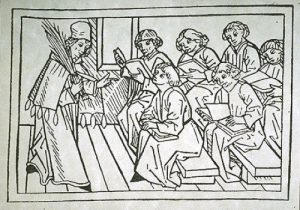Faculty Career Development Program
DEPARTMENT OF OTOLARYNGOLOGY – HEAD AND NECK SURGERY
UNIVERSITY OF NORTH CAROLINA
Amelia F. Drake, MD and Bill Shockley, MD
On behalf of the faculty promotions committee:
Brent Senior, John Grose, Robert Buckmire, Mark Weissler, Amelia Drake and Bill Shockley
MENTORING AND PROMOTION
– Recognizing and Supporting Faculty Work by C. G. Schneider, AACU, vol. 92, 2006 |
|---|

As the faculty is a key resource for the Department, we aim to mentor and promote faculty members in a timely fashion. The university has specific tracts that have separate processes for advancement. The Department hopes to ease the process of advancement for each faculty member by having an ongoing faculty development committee, whose members change as the need arises.
GUIDING PRINCIPLES AND GOALS
- Set up a regular and effective means of monitoring and fostering individual career development.
- Provide a systematic, coordinated program to help faculty identify, focus on, and achieve their individual career goals.
- Establish guidelines for expectations for the faculty as well as for their mentors and division chiefs.
- The Faculty Career Development Committee will review individual faculty development and will help guide and support faculty members.
- Each faculty member at the Assistant Professor or Associate Professor level will select a mentor within the Department. This does not preclude having multiple mentors.
- Faculty members will have an annual review by the Faculty Career Development Committee.
- The Department and Divisions will continue to provide the infrastructure necessary to facilitate individual, divisional and departmental goals.
- Recommendations coming from the Faculty Career Development Committee will be forwarded to the faculty member, Division Chief and/or Department Chair, as deemed appropriate by the committee

- Department of Otolaryngology — Head and Neck Surgery
GUIDELINES FOR MENTORS/MENTEES
The Mentor should meet with Faculty Member (Mentee) every 6 months at a mutually convenient time. Prepare for a formal committee review about once a year. See suggested format below for the Mentor-Mentee meeting prior to review.
- Meet with Faculty Member (Mentee) every 6 months at a mutually convenient time
- Prepare for a formal committee review about once a year. See suggested format below for the Mentor-Mentee meeting prior to review.
- Both parties: Review Appointment and Promotion documents prior to meeting
- Mentor: Review CV prior to meeting
- Mentee: complete a preliminary draft of the FCDP Annual Report
- Begin meeting with open discussionMentee: self-assessment of status, progress, and goals
- Mentor: review Faculty Career Development Program Annual Report and comment/critique/advise
- Identify specific milestones, goals for next meeting
- Identify specific requests to Faculty Career Development Committee, Division Chief or Department Chair
- Mentor: Return Final Copy of Annual Report (+/- letter at your discretion) to Dr Shockley prior to scheduled FCD Committee meeting, Email is preferred.
Mentoring Resources
